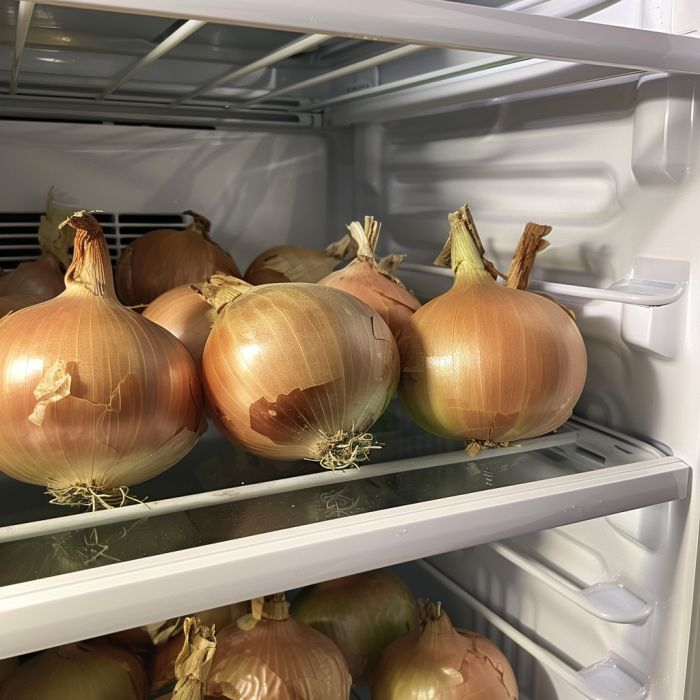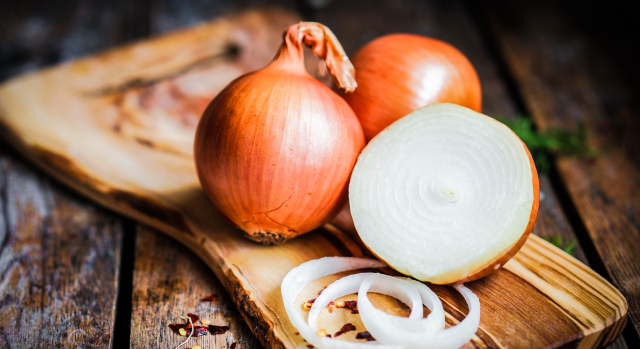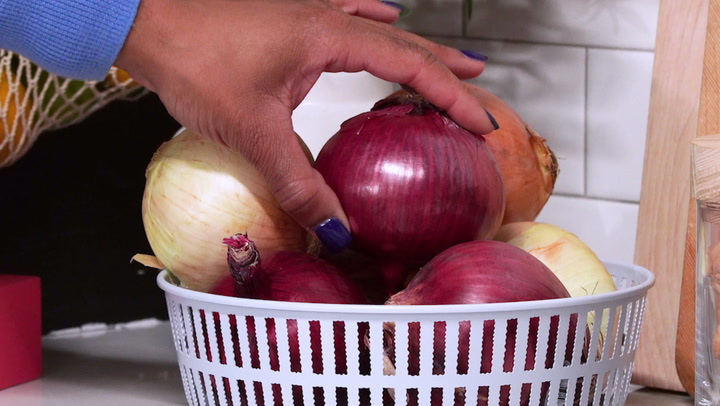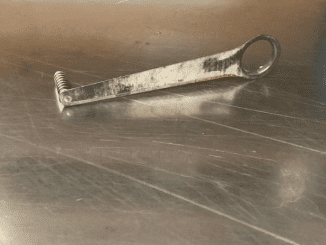The debate about whether or not to refrigerate onions has divided kitchens for years. Your husband wants to stick to the tradition his mother followed—keeping onions in the fridge—but you’ve read that it can affect their flavor. So, what’s the right answer? Let’s settle this once and for all by diving into the science of onion storage, the potential impact on flavor, and practical tips for keeping onions fresh.

The Science Behind Onion Storage
Onions are unique vegetables that thrive under specific storage conditions. They prefer a cool, dry environment to maintain their freshness and flavor. But what happens when you put them in the refrigerator?
- Temperature Sensitivity
Onions are best stored at temperatures between 45°F and 55°F, which is cooler than room temperature but warmer than a refrigerator. Refrigeration can cause starches in onions to convert into sugars more quickly, leading to a softer texture and sweeter taste—not always ideal for certain recipes. - Humidity Issues
The humid environment inside a fridge creates the perfect breeding ground for mold and rot, especially if onions are stored in plastic bags or airtight containers. - Ethylene Gas Production
Onions release ethylene gas, which can speed up the ripening and spoilage of nearby produce. Storing them in the fridge without isolating them can lead to unintended consequences for other fruits and vegetables. - Impact on Flavor
Refrigeration can dull the sharpness and pungency of onions over time. Their distinct crunch may also diminish, which can affect the texture of dishes where onions are meant to shine.
When Should You Refrigerate Onions?
While it’s generally not recommended to refrigerate onions, there are a few exceptions:
- Spring Onions and Scallions
These varieties have higher water content and are more perishable. Refrigerating them in a sealed container or bag can help retain their freshness. - Pre-Cut or Peeled Onions
If you’ve already chopped or peeled onions, store them in an airtight container in the fridge. This prevents them from drying out and keeps their flavor intact for a few days. - Hot Climates
In very humid or hot conditions, refrigeration might be better than leaving onions exposed to excessive moisture or heat.
Best Practices for Storing Onions Outside the Fridge
For mature, uncut onions, following these simple storage tips can keep them fresh and flavorful for weeks:
- Choose a Cool, Dry Spot
A pantry, cellar, or any shaded, well-ventilated area is ideal for onions. Avoid storing them near heat sources or direct sunlight. - Use Mesh Bags or Baskets
Good airflow is essential to prevent moisture buildup and reduce the risk of rot. Opt for mesh bags, baskets, or open crates instead of plastic bags or sealed containers. - Keep Onions Separate from Potatoes
Potatoes release moisture and gases that can cause onions to spoil faster. Always store them apart to maximize their shelf life. - Inspect Regularly
Check your onions periodically for signs of sprouting or soft spots. Use any onions that show early signs of deterioration first. - Know Your Variety
Different onions have different storage needs. Yellow and white onions store well in dry conditions, while sweet onions like Vidalia have a shorter shelf life due to their higher sugar content.

Refrigeration vs. Tradition: Finding Common Ground
Your husband’s preference for refrigerating onions might be rooted in habit or regional practices, especially in homes where refrigeration was seen as a catch-all solution for produce storage. While modern food science advises against refrigerating onions, there’s no one-size-fits-all answer. The best approach depends on how quickly you use onions, your kitchen conditions, and your personal preferences.
How to Balance Flavor and Convenience
If you want to honor his tradition while preserving onion quality, consider these compromises:
- Refrigerate Some Onions
Keep a small batch of pre-cut or peeled onions in the fridge for quick access while storing whole onions in a pantry. - Experiment with Storage Methods
Try keeping onions in both environments for a week to see which method aligns better with your cooking habits and taste preferences.
Conclusion: Preserve Your Onions, Your Way

The choice to refrigerate onions ultimately comes down to personal preference and practical considerations. While refrigeration can soften texture and alter flavor, it may still be the best option for pre-cut onions, spring onions, or in certain climates. For most whole onions, a cool, dry, and well-ventilated space will keep them fresh and flavorful.
So, whether you follow tradition or embrace modern storage practices, you now have the knowledge to make an informed decision that works for your household. After all, the goal is to enjoy those flavorful onions in your favorite dishes without unnecessary waste.


